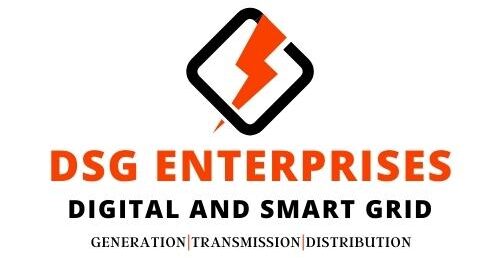In today’s fast-evolving power sector, ensuring the stability and reliability of the electrical grid is of paramount importance. Power failures and system malfunctions can lead to catastrophic consequences, including economic losses, industrial downtime, and even safety hazards. One of the key factors in maintaining grid stability is the effective operation of protection relays. Relay testing and commissioning services play a crucial role in verifying the integrity of these devices, preventing faults, and ensuring the seamless functioning of power networks.
Overview Of Relay Testing and Commissioning Services
Relay testing and commissioning services play a crucial role in maintaining the stability and reliability of power systems. Protection relays act as the first line of defense against electrical faults, detecting anomalies and triggering circuit breakers to isolate faulty sections. However, over time, relays may experience wear and tear, changes in settings, or malfunctions, making regular testing essential.
This blog explores the significance of Relay Testing Services in preventing grid failures and ensuring the smooth operation of substations across various voltage levels. It highlights the different types of protection schemes, including line distance, transformer differential, motor, generator, busbar, and feeder protection relays. The blog also details the step-by-step process of relay testing, from visual and mechanical inspections to functional and operational checks using advanced test kits like Omicron, Doble, and Megger.
Moreover, the importance of periodic maintenance is emphasized, as it helps identify potential failures before they lead to costly downtime. By ensuring accurate relay performance, these services enhance system reliability, minimize disruptions, and support seamless integration with SCADA systems.
Ultimately, relay testing and commissioning services are indispensable for ensuring grid stability, protecting electrical assets, and improving overall power system efficiency.
The Importance of Relay Testing and Commissioning Services
Relay testing and commissioning services ensure that protection relays are correctly installed, configured, and functioning as intended. These services help:
- Identify Malfunctions Before Failures Occur – Routine testing detects early signs of relay deterioration, enabling timely corrective actions.
- Ensure Compliance with Grid Code Regulations – Power utilities must adhere to industry standards such as IEC, ANSI, and IEEE. Proper relay testing ensures compliance with these requirements.
- Optimize Relay Settings for Changing Grid Conditions – As power networks evolve, relay settings may need adjustment to accommodate changes in load flow and fault levels.
- Enhance Overall System Reliability – Properly tested relays improve fault detection accuracy, reducing the risk of blackouts and cascading failures.
Methods of Relay Testing Services and Commissioning
Modern Relay Testing and commissioning services use advanced test equipment like OMICRON, Doble, and Megger to conduct accurate and efficient assessments. Testing is divided into several key stages, ensuring the integrity of both numerical and electromechanical relays.
- Visual Inspection: Before conducting detailed tests, technicians perform a thorough visual inspection of the relay unit. This step includes:
- Checking for dust, dirt, or corrosion on the relay casing
- Inspecting for loose connections, damaged insulation, or signs of overheating
- Verifying that the relay settings match the documentation
- Mechanical Inspection: During the mechanical inspection phase, the testing team ensures that all relay components are secure and in optimal condition. This process involves:
- Tightening loose connections that may have been affected by vibrations
- Measuring contact gaps and checking for excessive wear
- Inspecting seals and gaskets for degradation
- Functional Testing with Secondary Injection Kits: Functional tests verify that the relay responds correctly to simulated fault conditions. Using secondary injection test kits, technicians apply controlled voltage and current signals to the relay to measure its performance. This testing process validates the following:
- Relay pickup and dropout characteristics
- Tripping times under various fault scenarios
- Communication with master trip relays, auxiliary relays, and annunciators

Protection Schemes Tested in Relay Commissioning
Relay testing and commissioning services play a crucial role in verifying the reliability of various protection schemes in power systems. These schemes are essential for detecting and isolating faults, ensuring grid stability, and preventing equipment damage.
Line Protection Relays safeguard transmission lines from faults. Line Distance Relays quickly detect high-impedance faults, while Line Differential Relays compare current at both ends to identify abnormalities.
Transformer Protection Relays prevent catastrophic failures in transformers. Transformer Differential Relays detect internal faults by analyzing current discrepancies, whereas Restricted Earth Fault (REF) Relays provide focused protection against ground faults.
Motor and Generator Protection Relays enhance reliability by preventing equipment damage. Motor Protection Relays guard against overheating, overloads, and phase imbalances, while Generator Protection Relays protect against issues like rotor unbalance, over-speed, and loss of excitation.
Busbar and Feeder Protection Relays ensure operational stability. Busbar Protection Relays isolate faulty substation sections to prevent widespread outages, whereas Feeder Protection Relays shield distribution networks from overload and short circuits.
By rigorously testing these protection schemes, relay commissioning services help maintain a resilient and fault-tolerant power system, reducing downtime and enhancing overall grid security.
Integrating Relay Testing with SCADA and Smart Grids
As power systems become more digitized, relay testing must evolve to support SCADA integration and smart grid technologies. Advanced relay testing and commissioning services include:
- SCADA Compatibility Checks – Ensuring relays communicate seamlessly with remote control centers.
- Cybersecurity Assessments – Verifying that protection relays comply with modern security protocols.
- Automated Testing and AI-Driven Predictive Maintenance – Utilizing AI analytics to detect relay faults before they impact operations.
Conclusion
Relay Testing Services and commissioning services are essential for maintaining grid stability, protecting electrical infrastructure, and preventing costly power outages. By employing advanced test kits, following rigorous testing procedures, and conducting periodic maintenance, utilities can ensure that protection relays operate with precision and reliability.
With the increasing integration of smart grid technologies and digital substations, relay testing must adapt to evolving power system demands. Investing in high-quality relay testing and commissioning services is not just a precaution—it is a necessity for the future of sustainable and stable power networks.
At Digital & Smart Grid Enterprises, we take pride in being the leading Relay Testing Services provider in Mumbai. Our commitment is to deliver tailored Services and solutions that meet various industry requirements. Whether you have questions or wish to make a purchase, feel free to contact us for Relay Testing Services Price at +917021624024 or via email at marketing@dsgenterprises.in. With our deep expertise in Relay Testing and Commissioning Services and other Field Services, we guarantee consistent support throughout your journey. Discover our extensive product range by clicking here for more information.



